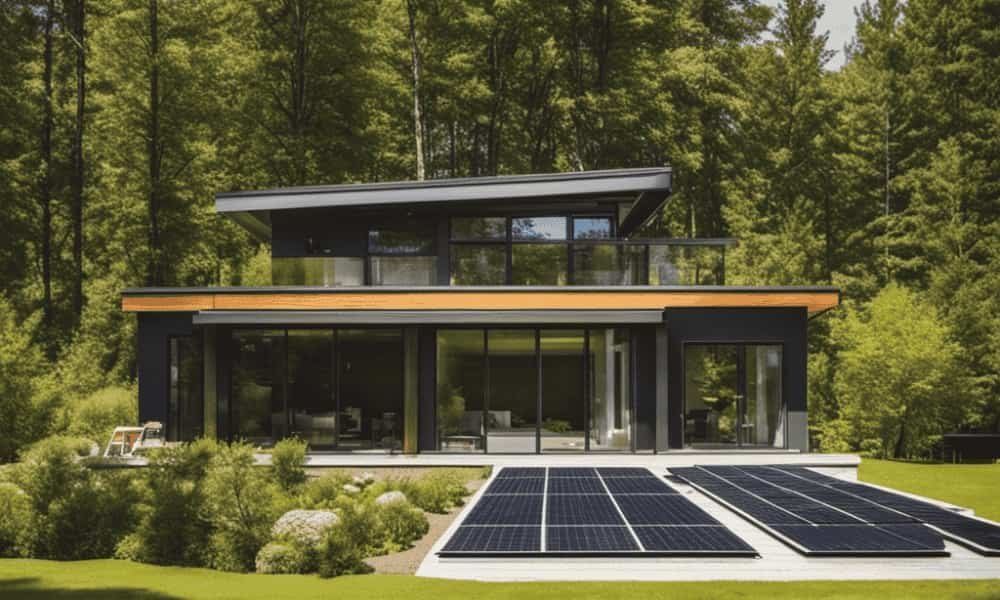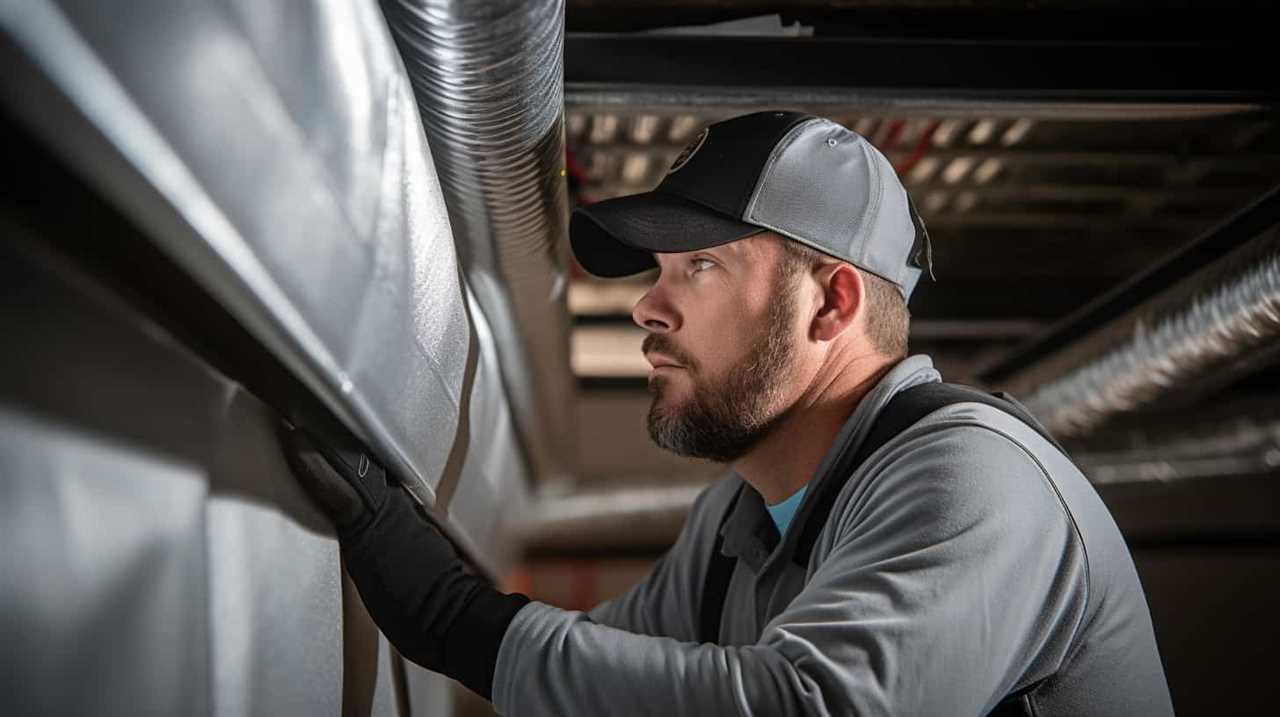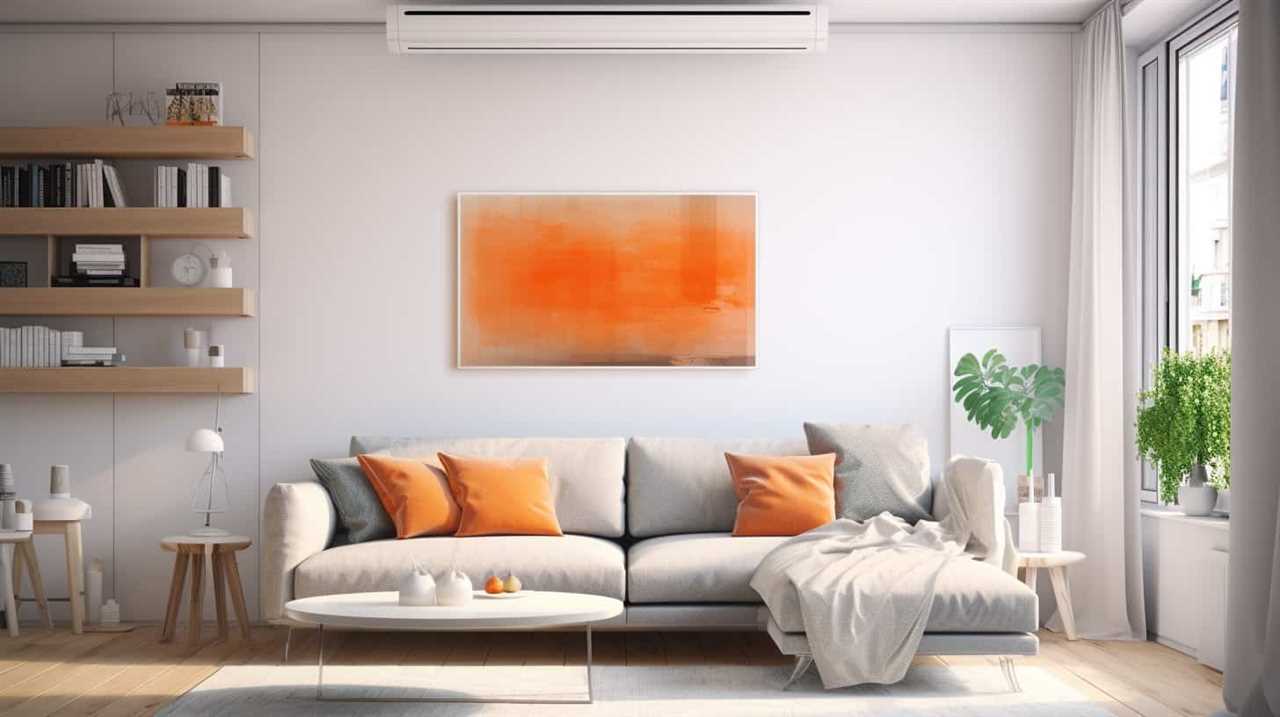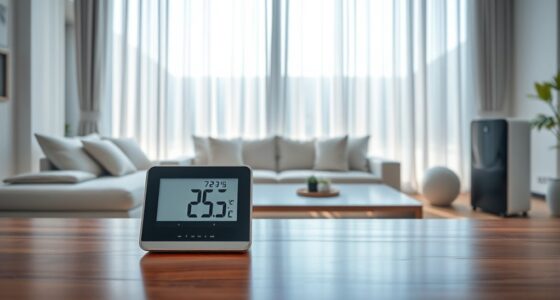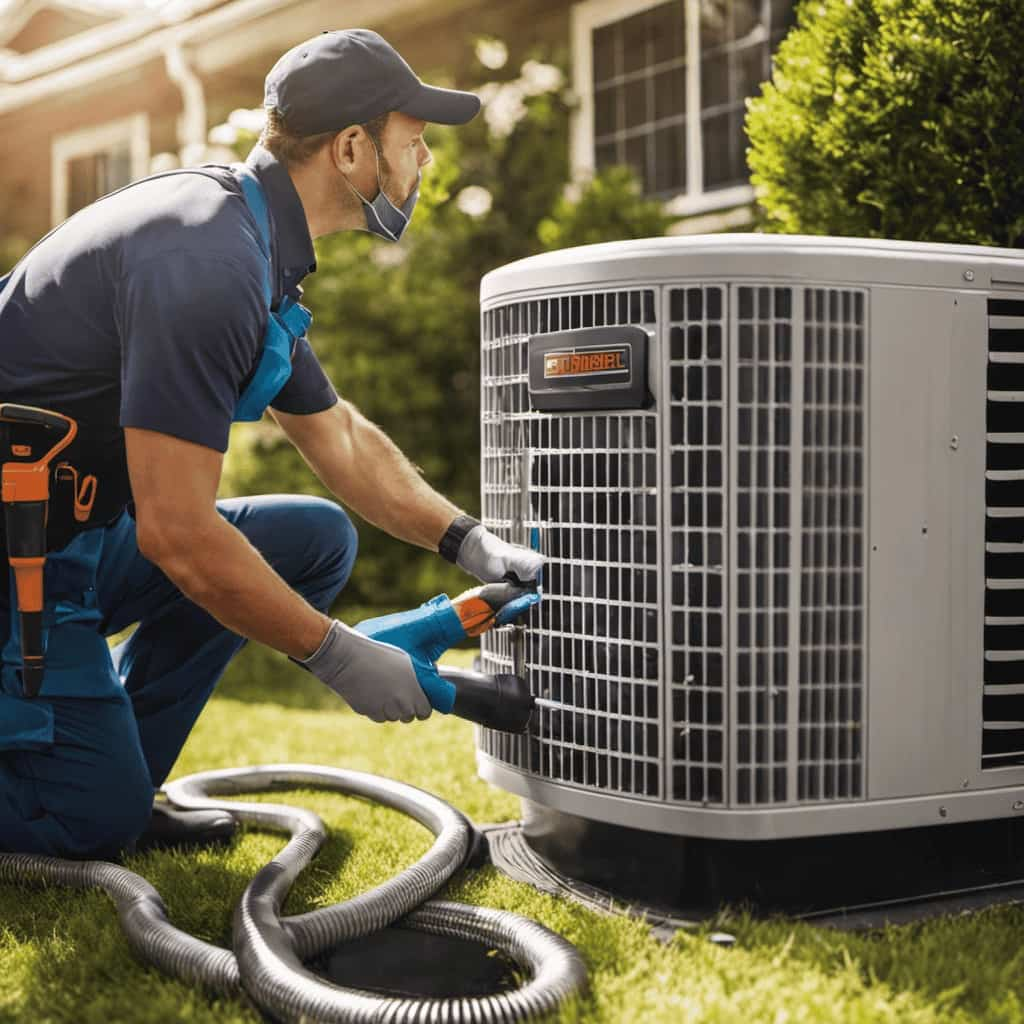Are you prepared to discover the perfect heat pump air conditioner that will keep us cool and comfortable throughout the entire summer? Search no more!
In this article, we will guide you through the process of choosing the perfect heat pump AC for your space. We’ll explore factors like energy efficiency ratings, size requirements, noise levels, and additional features to ensure that we make the best decision to serve our needs.
Let’s dive in and find our ideal heat pump AC!
Key Takeaways
- Consider the installation process and choose an easily installed unit to avoid additional costs and time.
- Look for models with accessible filters and components for hassle-free maintenance.
- Choose a unit that comes with a warranty for peace of mind and protection against potential issues.
- Consider the SEER and HSPF ratings for greater energy savings and lower environmental impact.
Factors to Consider When Choosing a Heat Pump Air Conditioner
When we’re choosing a heat pump air conditioner, there are several factors to consider.
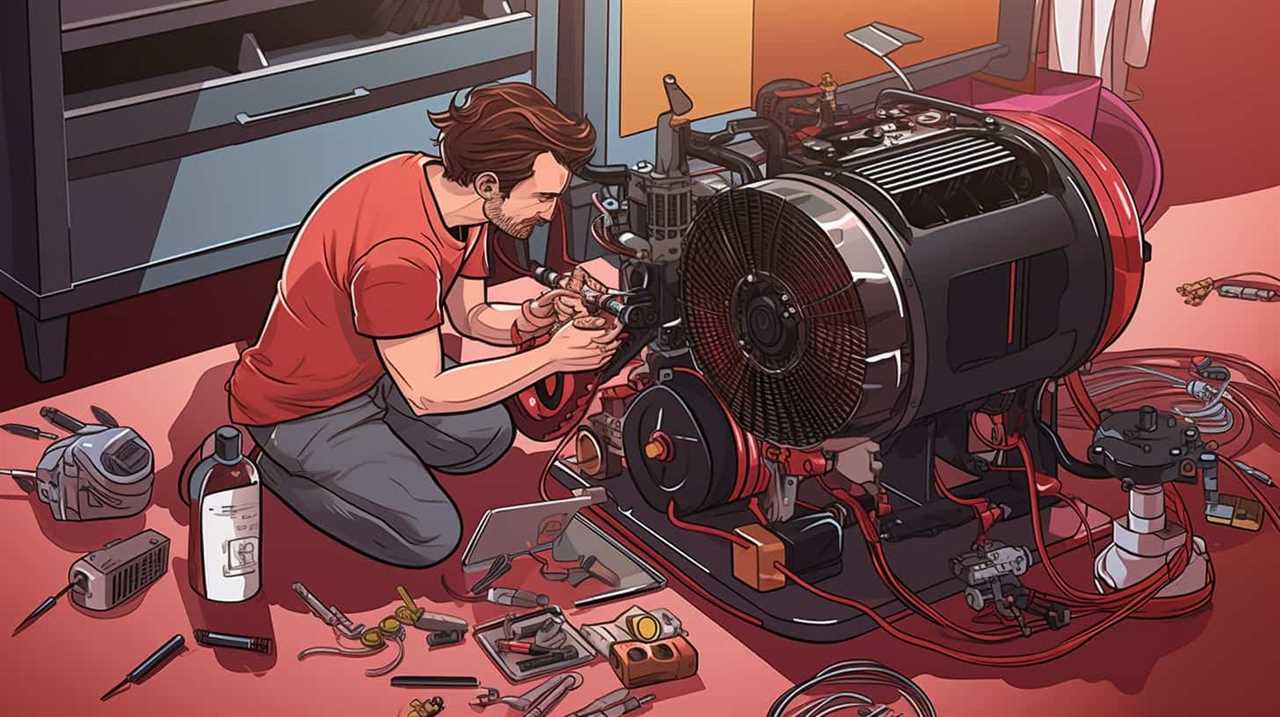
The installation process is an important consideration. It’s crucial to choose a unit that can be easily installed by a professional technician. Some models may require complex installation procedures, which can increase the overall cost and time involved.
Additionally, it’s essential to consider the maintenance requirements of the heat pump air conditioner. Regular maintenance is necessary to ensure efficient operation and prolong the lifespan of the unit. Look for models that have easily accessible filters and components for hassle-free maintenance.
It’s also beneficial to choose a unit that comes with a warranty, as it can provide peace of mind and protection against any potential issues.
Energy Efficiency Ratings and Savings Potential
To maximize our savings potential and minimize energy consumption, we should consider the energy efficiency ratings of heat pump air conditioners. Energy efficiency ratings provide valuable information on how efficiently a heat pump air conditioner can cool or heat a space relative to the energy it consumes. The ratings are typically expressed as a Seasonal Energy Efficiency Ratio (SEER) for cooling and a Heating Seasonal Performance Factor (HSPF) for heating. Higher SEER and HSPF ratings indicate greater energy savings and lower environmental impact.

When choosing a heat pump air conditioner, it’s important to look for models with higher SEER and HSPF ratings. While these units may have a higher upfront cost, they can provide significant long-term energy savings. In fact, according to the U.S. Department of Energy, upgrading from a 10 SEER unit to a 16 SEER unit can result in energy savings of up to 60%. This not only reduces our utility bills but also helps to reduce greenhouse gas emissions and protect the environment.
Size and Capacity Requirements for Your Space
By considering the size and capacity requirements of our space, we can ensure that our heat pump air conditioner effectively cools or heats our home. The size of our space will determine the cooling or heating capacity needed for the heat pump air conditioner to effectively regulate the temperature. Oversized units may result in higher costs and inefficient operation, while undersized units may struggle to meet our cooling or heating needs.
When it comes to choosing the right size and capacity for our space, we need to take into account both cost considerations and installation requirements. Additionally, we should consider the installation requirements, such as the physical space available for the unit, electrical requirements, and any necessary ductwork modifications.
Taking these factors into consideration will help us select the optimal size and capacity for our heat pump air conditioner.
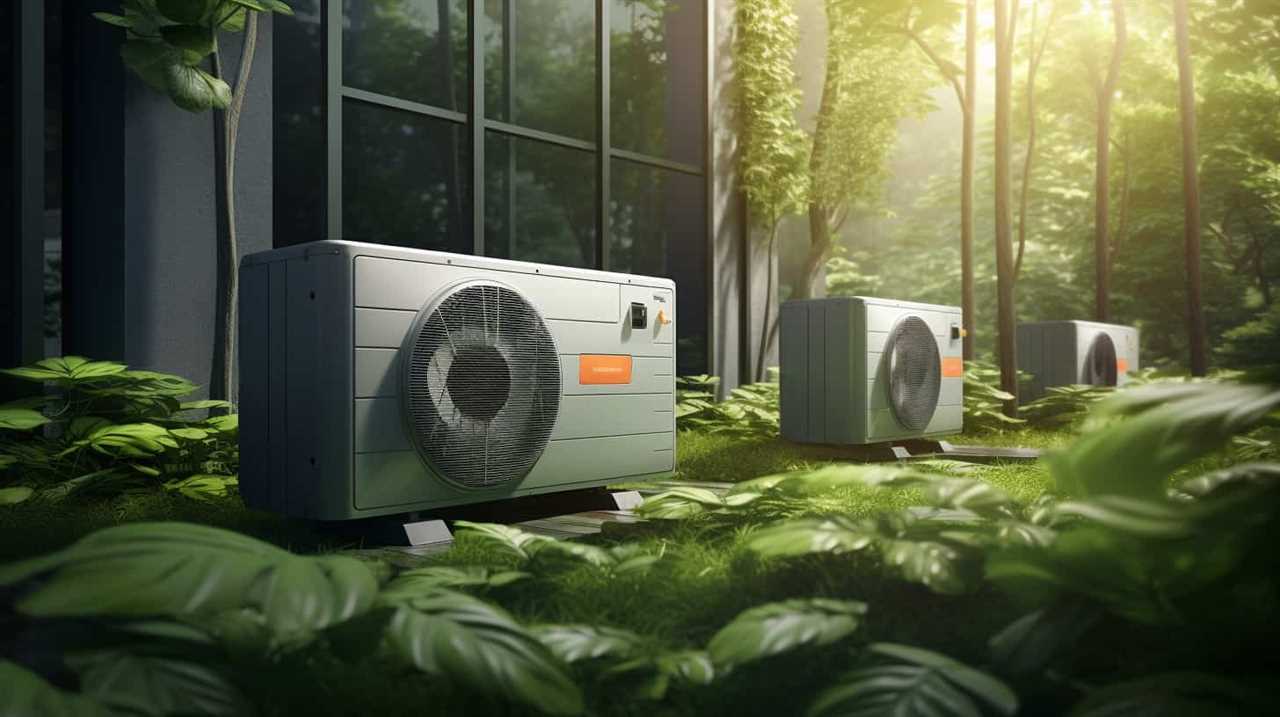
Noise Levels and Soundproofing Considerations
We can minimize noise levels and consider soundproofing options when selecting the ultimate heat pump air conditioner.
Noise reduction techniques are important to ensure a comfortable and peaceful indoor environment.
When choosing a heat pump air conditioner, it’s essential to consider the noise levels produced by the unit. Look for models that have lower decibel ratings, as this indicates quieter operation.
Additionally, soundproofing measures can be taken to further reduce noise transmission. This can include insulation, acoustic panels, and vibration isolation mounts.
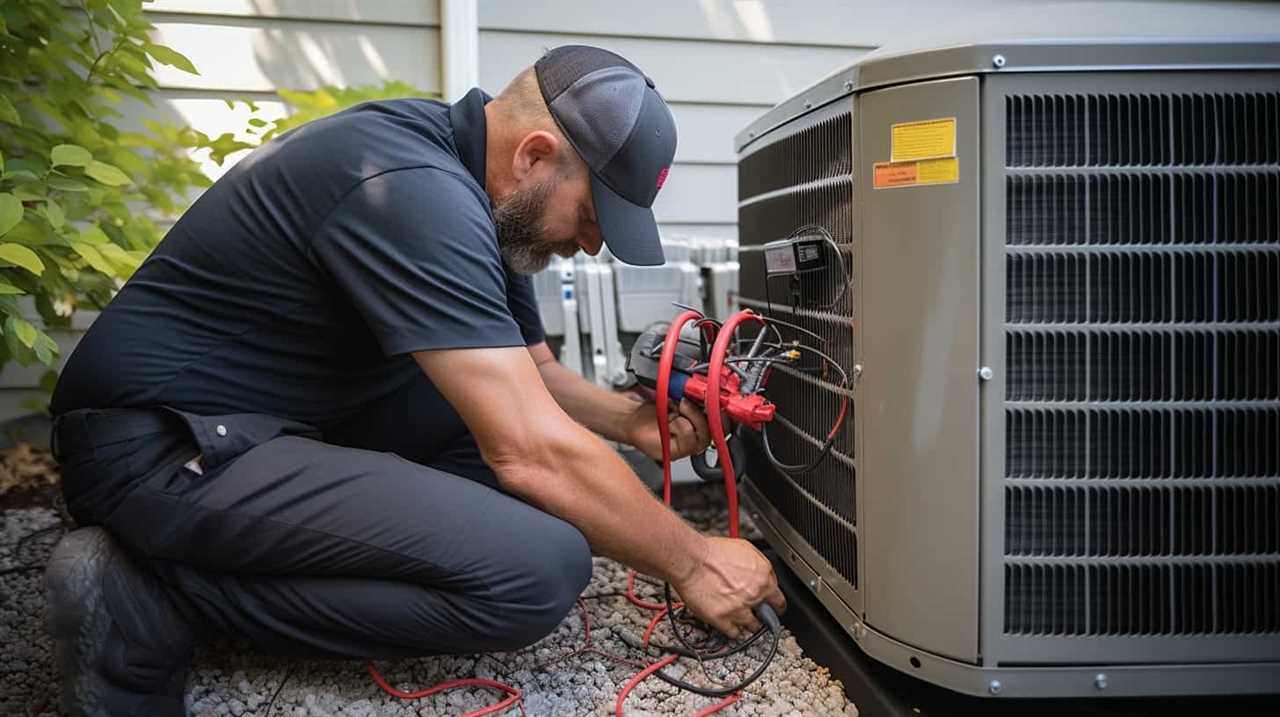
It’s important to note that noise reduction techniques shouldn’t compromise indoor air quality. Ensure that the chosen soundproofing materials are non-toxic and don’t release any harmful substances into the air.
Additional Features and Technology Options to Enhance Comfort and Convenience
Some additional features and technology options can enhance our comfort and convenience when choosing the ultimate heat pump air conditioner. Here are three key options to consider:
-
Smart home integration: With advancements in technology, heat pump air conditioners can now be connected to smart home systems. This allows you to control and monitor your air conditioner remotely through your smartphone or other smart devices. You can adjust the temperature, set schedules, and receive notifications, providing you with greater control and convenience.
-
Advanced filtration systems: Air quality is essential for a comfortable and healthy living environment. Look for heat pump air conditioners that come with advanced filtration systems. These systems can remove allergens, pollutants, and bacteria from the air, ensuring clean and fresh indoor air quality. Some models even have HEPA filters, which are highly effective at capturing microscopic particles.
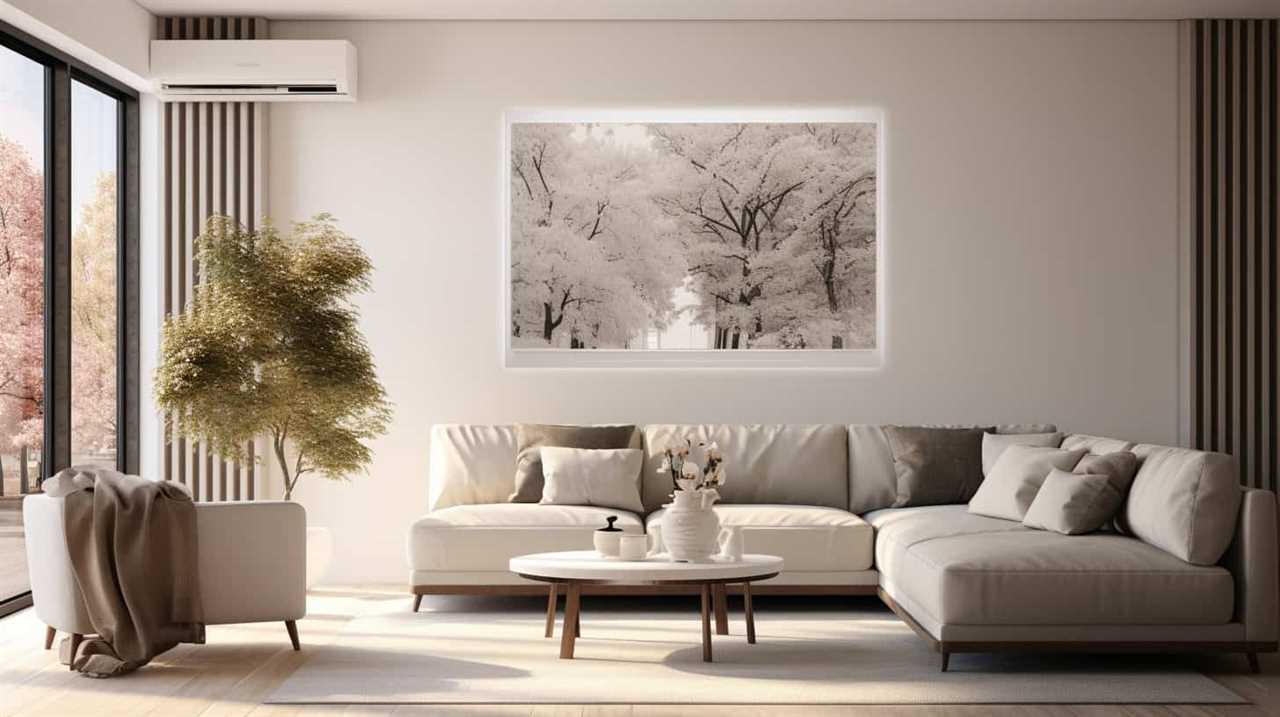
-
Energy-saving modes: To maximize energy efficiency and reduce costs, opt for a heat pump air conditioner that offers energy-saving modes. These modes automatically adjust the temperature and fan speed to optimize energy consumption while maintaining comfort levels. This feature not only saves you money on your energy bills but also helps reduce your carbon footprint.
Frequently Asked Questions
Are Heat Pump Air Conditioners More Expensive to Install Compared to Regular Air Conditioners?
Heat pump air conditioners can be more expensive to install compared to regular air conditioners. However, they offer significant long-term cost savings due to their energy efficiency, making them a worthwhile investment.
How Often Do Heat Pump Air Conditioners Need to Be Serviced or Maintained?
When it comes to servicing and maintaining heat pump air conditioners, our experience has shown that regular maintenance is crucial. The frequency of service depends on usage and environment, but can help minimize long-term maintenance costs.
Can a Heat Pump Air Conditioner Be Used as a Standalone Heating System During the Winter Months?
A heat pump air conditioner can be used as a standalone heating system during the winter months. It provides efficient heating by transferring heat from the outside air to the indoors, saving energy and reducing utility costs.
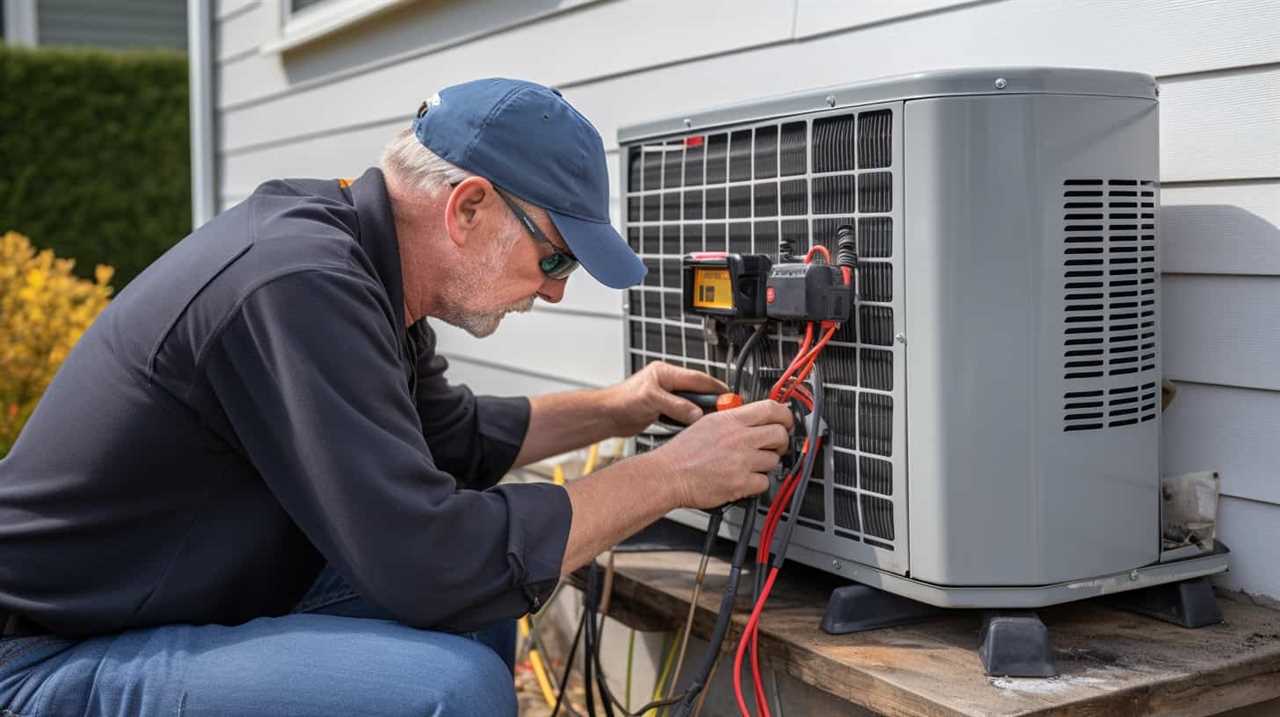
Are There Any Restrictions or Regulations Regarding the Installation of Heat Pump Air Conditioners in Certain Areas?
When it comes to heat pump air conditioner installation, we must consider the regulations and restrictions. It’s crucial to adhere to local codes and regulations to ensure a safe and efficient installation process.
Can a Heat Pump Air Conditioner Be Operated Remotely Using a Smartphone or Other Smart Devices?
Yes, heat pump air conditioners can be operated remotely using smartphones or other smart devices. This remote control functionality allows for convenient temperature adjustments and energy efficiency optimization.
Conclusion
In conclusion, choosing the ultimate heat pump air conditioner requires careful consideration of various factors including:
-
Energy efficiency: One interesting statistic to note is that energy-efficient heat pump air conditioners can save up to 20-50% on energy costs compared to traditional systems, providing significant long-term savings.
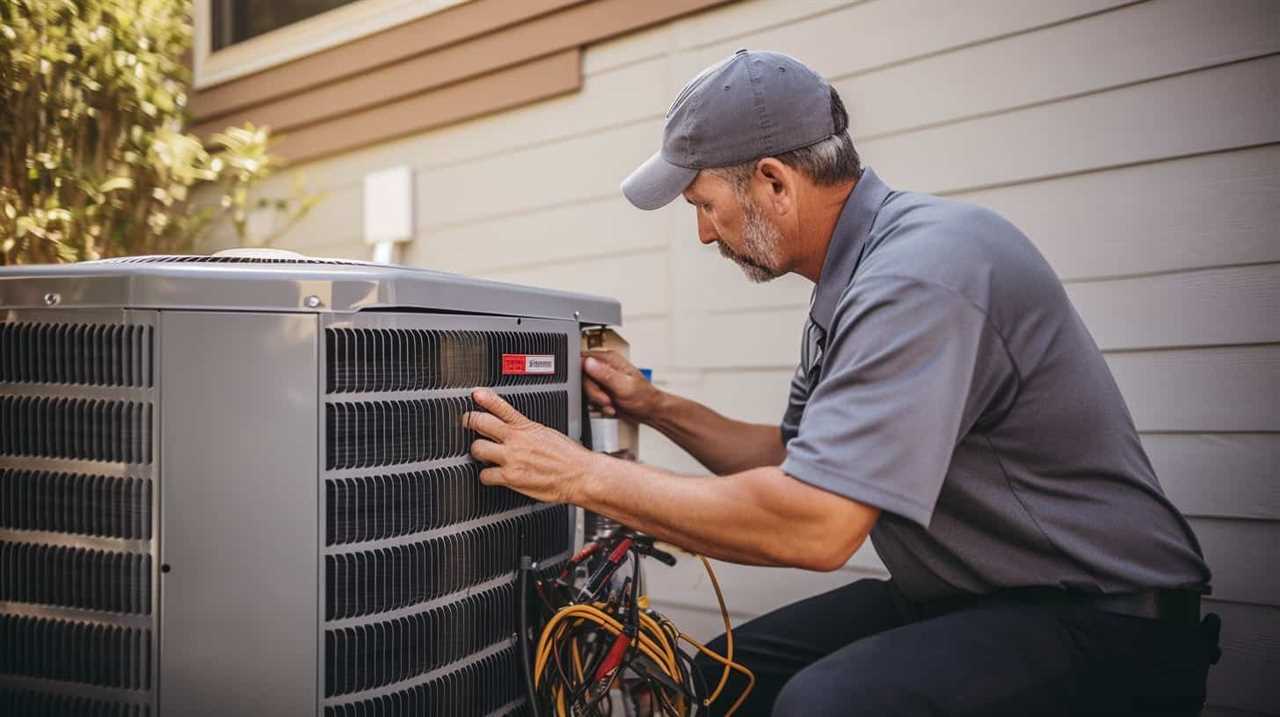
-
Size and capacity requirements: It is important to choose a heat pump air conditioner that is properly sized for your space and can effectively cool or heat the area.
-
Noise levels: Consider the noise levels of the heat pump air conditioner, especially if you plan to use it in a bedroom or living area where excessive noise can be disruptive.
-
Additional features: Take into account any additional features that may be important to you, such as programmable thermostats, remote control capabilities, or advanced air filtration systems.
By thoroughly assessing these factors, you can make an informed decision to ensure optimal comfort and convenience in your space.
